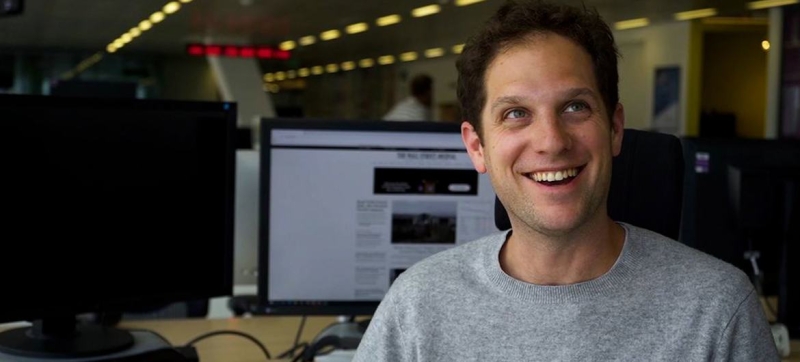
Evan Gershkovich, a journalist for The Wall Street Journal, was released on August 1 as part of a prisoner swap between the United States, Russia and several other countries. Russia: All remaining jailed human rights activists, journalists and war opponents should be released, UN experts say Human Rights
Independent UN experts have welcomed the release of 16 people held in custody in Russia, but expressed concern that 1,372 people remain in prison in the country, detained “on politically motivated charges.”
UN human rights defenders have issued a joint statement calling on the Russian authorities to immediately and unconditionally release all those who remain in custody for peacefully expressing their political views.
“We welcome the release on August 1, 2024, of Evan Gershkovich, Vladimir Kara-Murza, Lilia Chanysheva, Ilya Yashin, Andrei Pivovarov, Alsu Kurmasheva, Oleg Orlov, Sasha Skochilenko and others as part of the largest prisoner exchange since the Cold War, involving Russia, Belarus, the United States, Poland, Norway, Slovenia, Turkey and Germany,” the experts said in a statement.
“Most of those released were arbitrarily detained for peacefully opposing the Russian government and its war on Ukraine through human rights work, journalism, creativity and political activism. Their detentions are contrary to international human rights standards and indicate an escalation of repression against dissent and freedom of speech in Russia since its full-scale invasion of Ukraine,” the human rights activists emphasize.
Wall Street Journal correspondent Evan Gershkovich and Radio Free Europe/Radio Liberty journalist Alsu Kurmasheva have been sentenced to lengthy prison terms in Russia “simply for doing their jobs,” the statement said. Pulitzer Prize-winning journalist and political activist Vladimir Kara-Murza and opposition figures Ilya Yashin and Andrei Pivovarov were detained “for actively participating in the activities of the Russian political opposition and speaking out against the war against Ukraine.”
Experts note that Liliya Chanysheva and two of her colleagues were arrested on charges of “organizing an extremist community” for working for Alexei Navalny’s Anti-Corruption Foundation (FBK). Leading Russian human rights activist and co-chairman of the Nobel Peace Prize-winning human rights organization Memorial Oleg Orlov was targeted “for his human rights activities and open condemnation of the war,” while artist Sasha Skochilenko was jailed for replacing supermarket price tags with anti-war stickers. In addition, three participants in the exchange with dual citizenship of Germany and Russia were convicted of treason, and, as experts point out, their court hearings were held behind closed doors, and the evidence used against them was never made public.
Read also:
Special Rapporteur on Human Rights in the Russian Federation: Navalny should have been released along with other political prisoners
“We share the joy and relief of the families and friends of the released activists who are now free and no longer subjected to ill-treatment in custody,” the statement said.
At the same time, the experts are deeply concerned about the fate of the remaining political prisoners, estimated to number between 700 and 1,372, who are still in Russian prisons “on fabricated or politically motivated charges.”
“Their continued detention risks further human rights violations, including torture, ill-treatment and enforced disappearances, and once again underlines the urgent need for Russia to uphold human rights and fulfill its international obligations,” the experts said.
“The Russian government should immediately and unconditionally release all remaining political prisoners,” they added.
The human rights defenders also called on Russia to repeal laws that restrict freedom of expression, including laws on “disseminating false information about the use of the Russian Armed Forces,” “discrediting the use of the Russian Armed Forces,” and “extremism.”
“It is vital to amend criminal legislation to prevent the abuse of national security laws to suppress dissent and persecute opposition figures, human rights defenders, and journalists who truthfully report on the war in Ukraine and criticize the Russian authorities,” the experts concluded.
The statement was made by Special Rapporteur on human rights in Russia Mariana Katsarova, Special Rapporteur on the situation of human rights defenders Mary Lawlor, representatives of the Working Group on Enforced Disappearances, and a number of others experts.
*Special rapporteurs and working groups are part of the so-called special procedures of the Human Rights Council. Special procedures mandate holders are independent human rights experts appointed by the Human Rights Council to examine either specific country situations or thematic issues in all parts of the world. They are not UN staff and are independent of any government or organization. They serve in their individual capacity and do not receive a salary for their work.
